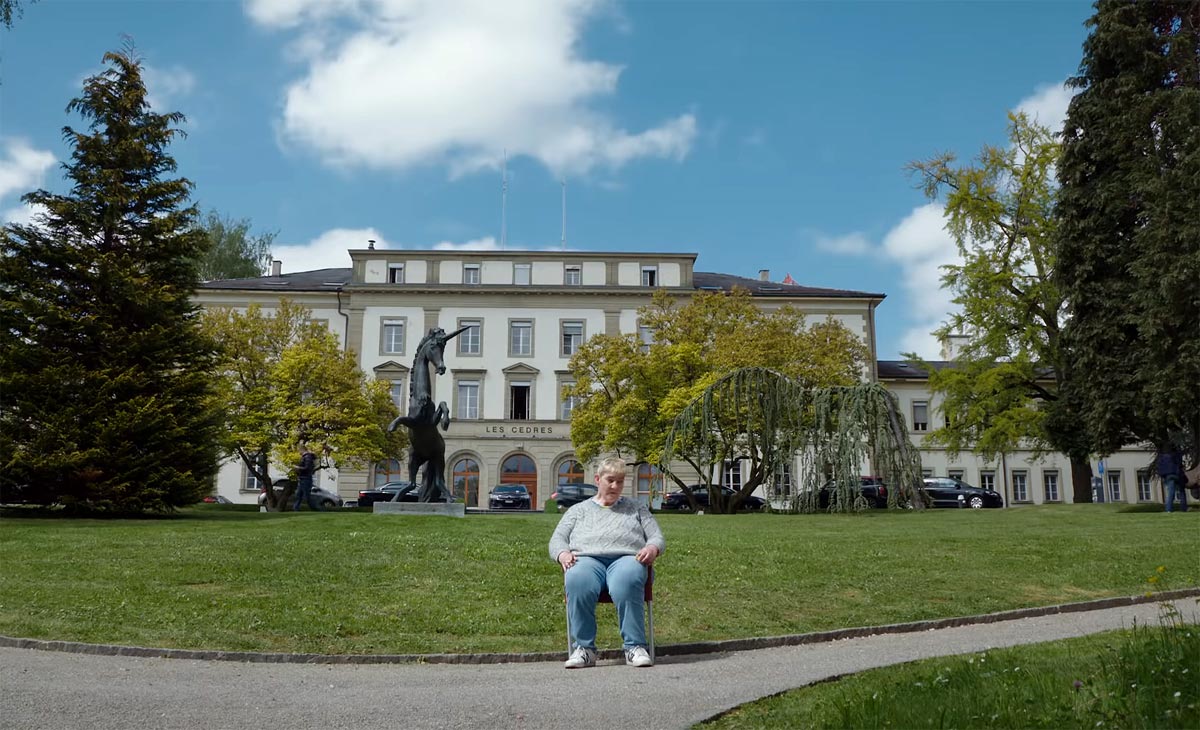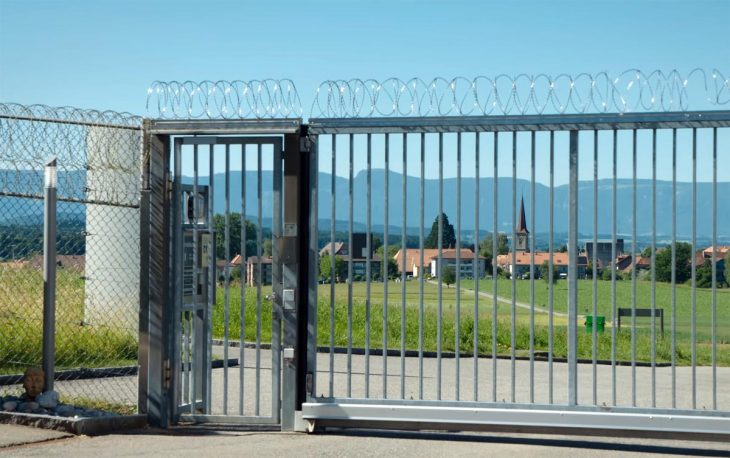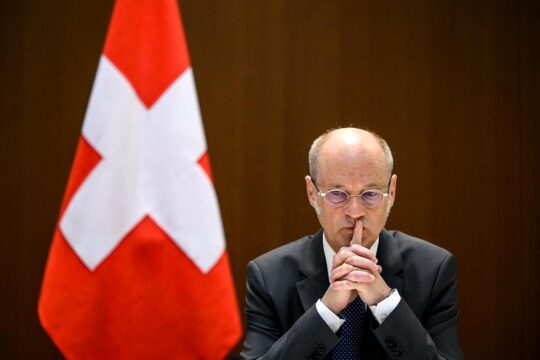A man says he had his teeth knocked out, a woman tells of being forced to clean the prison floor with a toothbrush, and another says she was pumped full of psychotropic drugs. “It leaves scars that can’t be erased,” says one victim in a documentary film produced by the Independent Expert Commission on Administrative Detention. “Even if it’s invisible, it’s deep.” As well as being arbitrarily locked up against their will, many were physically and psychologically tortured. “People have to be made aware of the fact that thousands of children and young people and adults were treated unjustly, “and this in Switzerland where everyone always believes they do everything right” says another victim. The commission, which worked for four years and presented its report in early September this year, says more than 60,000 people were interned over the last century in some 650 institutions without any judicial order. This is not the first time that the issue has been raised in Switzerland, but this report reveals the wide scale of the abuse.
Forced adoptions and sterilizations
They were put, says the report, in homes, prisons, and psychiatric hospitals because their lifestyle did not correspond to society’s expectations. Many were forced to work for no pay, while some were abused physically, psychologically and even sexually. There were forced adoptions and sterilizations. Victims included children and adults, both male and female. Those most vulnerable to such measures were people from poor backgrounds and/or who were “socially marginalized”, such as single mothers, men in insecure menial jobs or unemployed, “rebels” and people who had already been placed in care as children. They were locked up for shorter or longer periods, sometimes several times, for being “lazy” or “dissolute”, on orders from local prefects or local community leaders. “Administrative detainees” were often kept with convicted criminals, and children with adults. Although laws and practices differed, this happened across Switzerland under opaque laws that gave victims little or no recourse.
The report of the commission, which had access to official archives and victims testimonies, looks particularly at “administrative detentions” from 1930 to 1981. The commission calls for financial and emotional assistance for victims as well as public education as steps toward rehabilitation.
Breaking the silence
Yet for decades the victims kept silent. If they wanted to find work and get ahead, they felt they could not tell their stories because no-one would believe they had not committed a crime. Some even hid their past from their spouses and children. It is only in recent years that stories have come out and public pressure has built for redress.
“The commission had its first legal basis in the Federal Act of 21 March 2014 on rehabilitation of people under administrative care,” said commission president Markus Notter at the presentation of the report on September 2. “The impetus for this came in 2011 from the Parliament. However, rehabilitation has a much longer history. It was individuals who had suffered under administrative care and who had been left to their fate that drew attention to the injustice they suffered. It took a long time until people believed them and took them seriously. The public support was initially small. It took courage to come forward.”
Most of the testimonies to the commission are from people who were adolescents at the time and are now retired. The fact that they are no longer seeking work may be one of the reasons they have broken their silence, but not only. Commission vice-president Anne-Françoise Praz says she thinks they “have a need to no longer be hidden and be ashamed”.

New trend for democracies
This is a shameful chapter for a country often seen as a model of democracy. But as the report points out, Switzerland is not alone in taking its skeletons out of the cupboard. Other Western countries have in recent years finally tried to confront and provide some redress for historical abuses, whether it be, for example, against indigenous communities in Australia, Canada and Finland, or against “fallen women” in Irish Catholic institutions.
The authors of Age of Inquiry, a global mapping of institutional abuse inquiries led by Katie Wright of La Trobe University in Australia, argue that it is a trend in Western democracies. “Inquiries on different levels - regional, state or sometimes within congregations or civil society - have been conducted in twenty nations,” project co-leader Johanna Sköld told JusticeInfo. “This has spread since the 1990s. And we say this is part of a trend to inquire about abuse in the past. Inquiries are not established in a national vacuum, they are established in relation to what is happening in neighbouring countries.” Sköld, a professor of child studies at Linköping University in Sweden, cites the example of how the Nordic countries followed each other in setting up historical abuse inquiries, and how Australia’s Bringing them Home report on separation of Aboriginal children from their families also sparked demands for justice from other vulnerable groups. “Both within the nation and between nations there can be inspiring links that set this in motion,” she says.
Why now?
Sköld thinks there are several reasons, including new concepts of children and childhood along with the 1989 UN Convention on the Rights of the Child, and also changing power structures and whether we are allowed to question them. “For example in Ireland, all the discussion has been around the Catholic Church, and it wasn't possible to criticize it in this way before, but since the 1990s it has been more possible. And in Sweden, the disclosures of abuse coincided with criticisms of the welfare state.” She also thinks social media might have something to do with it. “We have a society today where it's possible to talk about traumatic memories in another way, so there have been discussions about the therapeutic society where we are supposed to share our emotions and traumas. Social media has opened up for people to share in a way that wasn't possible before.”
Enhanced financial reparations
Some steps to reparation have already been taken in Switzerland, as a result of decades of struggle by victims and their allies. In September 2010 a public apology was issued by government minister at that time Eveline Widmer Schlumpf. A law adopted in 2016 provided for a “solidarity contribution” of 25,000 Swiss francs to victims, upon demand. The independent commission recommends that the deadline to apply for the 25,000 Swiss francs, originally set at March 2018, be waived. Commission vice-president Anne-Françoise Praz says many of the victims did not apply, for lack of information or for other reasons. Some still have a deep-seated fear of the authorities.
For her, this is only the beginning of the rehabilitation process. The commission recommends further financial measures for victims, including the right to a lifetime pension, a free rail pass, tax exemptions for those in debt, and a fund to cover uninsured medical expenses. It concluded from meetings with victims that the detentions “had a lasting impact on their lives, on their physical and mental health but especially on their income, because they were deprived of training, of a professional job”, says Praz. “And now they are at retirement age with really tiny pensions.”
Talking about it
The commission recommends setting up a “House of the Other Switzerland”, a place for exchange and remembrance on this dark chapter of Swiss history. Praz says this recommendation emerged from victims’ demands to be more involved in the public space. It could be a place for exhibitions and exchanges, including with the wider public, she says, and would be run by victims themselves. It would also be a place where victims could receive support and advice on, for example, “how to campaign, how to contact parliamentarians”.
This is something supported by victims in the documentary film. “The more discussion there is, not just among the victims but in society, the more you feel a sense of solidarity, and the easier it is for me to talk about it,” says one. “Talking about it brings some relief. We don’t have to live with a taboo anymore.”
Discussions with experts. Administrative detention and paths to rehabilitation
The documentary film cited in this article, produced by the Independent Expert Commission (IEC) on Administrative Detention in Switzerland, is available in full on Youtube and on the CIE website.







